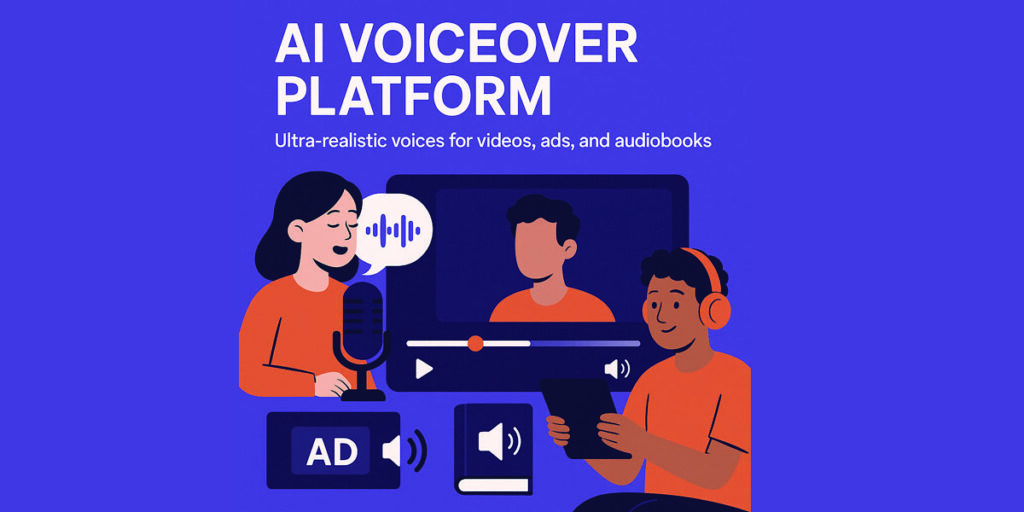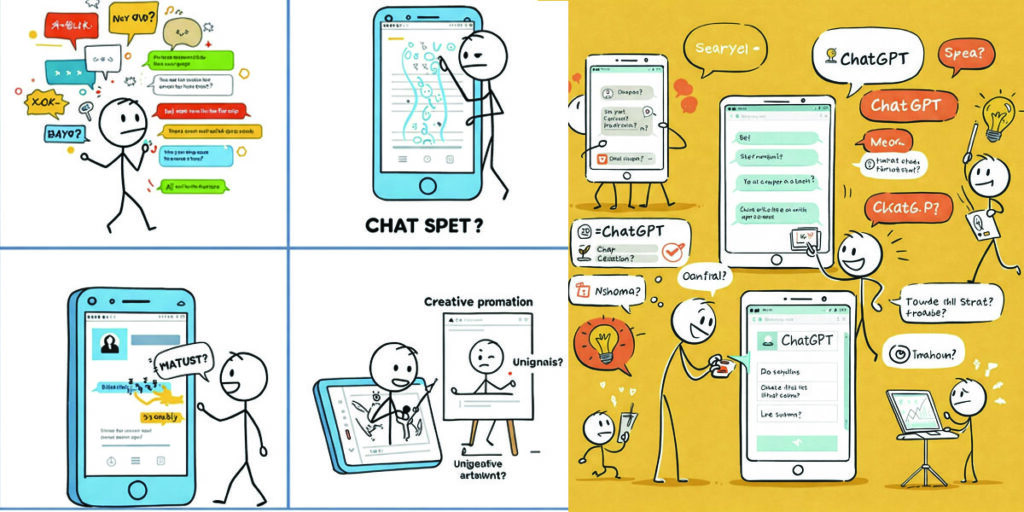AI voiceover platform with ultra-realistic voices for videos, ads, and audiobooks.
Lovo.ai has rapidly carved out a significant niche in the competitive AI voice generation market. Through its commitment to ultra-realistic voice quality, a comprehensive suite of content creation tools within its Genny platform, substantial funding, and a growing user base, it has positioned itself as a key enabler for creators and businesses worldwide. From its origins in Berkeley to its current standing with over 2 million users, Lovo.ai’s journey reflects the dynamic evolution of AI’s impact on media and communication.
As the technology continues to advance, Lovo.ai will undoubtedly face ongoing challenges, from navigating ethical terrains to staying ahead in a rapidly innovating field. However, its robust technological foundation, coupled with a clear understanding of creator needs, suggests a continued upward trajectory. Lovo.ai is not just generating voices; it’s helping to orchestrate the sound of the future, one impeccably synthesized word at a time, making sophisticated content creation more accessible, v
In an era where digital content reigns supreme, the demand for high-quality, engaging multimedia has never been greater. From captivating video advertisements and immersive audiobooks to accessible e-learning modules and viral social media clips, the voice that delivers the message is as crucial as the message itself. Stepping into this dynamic landscape is Lovo.ai, an innovative artificial intelligence platform rapidly distinguishing itself with its suite of ultra-realistic AI voices and comprehensive content creation tools. This article delves into the history of Lovo.ai, analyzes its position within the burgeoning economic market of AI voice generation, explores its technological prowess, and examines its networking efforts and future trajectory in shaping the future of synthetic media.
The Ascent of Lovo.ai: A Historical Perspective
Lovo.ai emerged from the vibrant tech hub of Berkeley, California, co-founded in 2019 by visionaries Tom Lee and Charlie Choi. Their ambition was to transcend the often robotic and monotonous nature of early text-to-speech (TTS) systems. The core mission: to empower creators with AI voices that are not just intelligible, but also deeply human-like, capable of conveying a wide spectrum of emotions and nuances. One early source indicates Tom Lee began conceptualizing and working on Lovo in 2018, laying the groundwork for what would become a significant player in the AI voice space.
The company’s journey has been marked by strategic development and critical financial backing. Lovo.ai successfully navigated the challenging early stages of a tech startup, focusing on research and development to refine its voice synthesis models. A key milestone in its evolution was the launch and continuous enhancement of “Genny,” its flagship AI voice generator. Genny is more than just a TTS engine; it has evolved into an all-in-one content creation powerhouse, integrating features like an online video editor, an AI writer to help craft scripts, an AI art generator, and sophisticated voice cloning capabilities.
This innovation attracted significant investor interest. Lovo.ai has secured a total of $6.5 million in funding across two crucial seed rounds. The first, in August 2021, brought in $4.5 million, led by prominent South Korean firms Kakao Entertainment and LG CNS, along with Kakao Investment. This was followed by a $2 million seed round in April 2022, with investors including Hashed, PKO Investments, Goodwater Capital, and participation from Berkeley SkyDeck, an accelerator known for nurturing promising startups. This financial infusion has been instrumental in scaling its operations, expanding its voice library, and pushing the boundaries of AI voice technology.
Like any pioneering venture, Lovo.ai faced its share of challenges. The primary hurdle in the AI voice domain is achieving true vocal realism – mimicking the subtle prosody, intonation, and emotional inflections that make human speech engaging. Developing AI models capable of this, across a multitude of languages and accents, requires vast datasets, sophisticated machine learning algorithms, and continuous iteration. Furthermore, navigating the competitive landscape and addressing early concerns around voice authenticity and potential misuse are ongoing endeavors that Lovo.ai has proactively tackled by focusing on quality, user control, and advocating for responsible AI.
The Sonic Boom: Lovo.ai and the AI Voice Market
Lovo.ai operates within the rapidly expanding AI voice generation market, an industry experiencing explosive growth. Market research underscores this surge. For instance, Straits Research reported the global AI voice generator market size at $4.9 billion in 2024, projecting it to soar to $54.54 billion by 2033, registering a compound annual growth rate (CAGR) of 30.7%. Similarly, KBV Research anticipates the market will reach $25.75 billion by 2031, growing at a CAGR of 29.8%. North America currently dominates the market, driven by early technology adoption and a high concentration of AI companies, while the Asia Pacific region is tipped to be the fastest-growing.
Several key drivers are fueling this sonic boom. The insatiable global demand for video content, podcasts, audiobooks, and other forms of digital media is paramount. AI voices offer a scalable and cost-effective solution for voiceovers, narration, and character dialogue. The need for content localization – adapting materials for diverse linguistic and regional audiences – is another significant factor. AI can generate voices in numerous languages and accents far more efficiently than traditional methods. Cost-efficiency is a major draw for businesses and individual creators alike, reducing the expenses associated with hiring human voice actors, studio time, and re-recording. Furthermore, AI voice technology enhances accessibility, providing solutions for individuals with reading difficulties or visual impairments, and enabling voice-enabled applications.
Lovo.ai has strategically positioned itself to cater to a diverse clientele. Its primary target audience includes:
- Content Creators: YouTubers, podcasters, social media influencers who require engaging voiceovers.
- Marketers and Advertisers: Professionals creating compelling ad reads, promotional videos, and branded content.
- E-learning and Corporate Training: Developers of educational materials and corporate training modules needing clear and consistent narration.
- Audiobook Publishers: Seeking versatile and emotive voices for audiobook narration.
- Businesses: For customer service applications, virtual assistants, and corporate communications.
- Game Developers and Animators: Requiring diverse character voices for immersive experiences.
The competitive landscape for AI voice generation is vibrant, featuring prominent players such as Murf.ai, ElevenLabs, WellSaid Labs, Descript, Play.ht, and Respeecher, alongside offerings from tech giants like Amazon Polly and Microsoft Azure Speech Services. Lovo.ai differentiates itself through several key aspects:
- Ultra-Realistic Voice Quality: A primary focus on naturalness and emotional range.
- Comprehensive Feature Set: The Genny platform offers an integrated suite of tools beyond just TTS, including video editing, AI-assisted scriptwriting, and image generation, providing a more holistic content creation workflow.
- Extensive Voice Library: Offering over 500 voices across more than 100 languages and supporting over 25 different emotions.
- Advanced Customization: Granular control over voice characteristics like pitch, speed, pauses, and emphasis.
- Voice Cloning: Allowing users to create unique voice personas.
The economic implications of platforms like Lovo.ai are profound. They are democratizing content creation, empowering individuals and small businesses with tools previously accessible only to large studios or those with significant budgets. This leads to a greater diversity of voices and content. While concerns exist about the impact on traditional voice actors, many see AI voice as a tool that can augment human creativity, handle bulk narration tasks, or provide placeholder audio, allowing human actors to focus on more nuanced, high-value performances. The technology also creates new opportunities for voice actors to license their voices for AI generation, as seen in some emerging marketplace models.
The Anatomy of Realism: Lovo.ai’s Technological Edge
The cornerstone of Lovo.ai’s appeal is its “ultra-realistic” voice output. Achieving this level of naturalness is a complex technological feat, rooted in advanced artificial intelligence, particularly deep learning and neural networks. While the company, like many in the competitive AI space, doesn’t reveal the full intricacies of its proprietary models, the general approach involves training sophisticated algorithms on massive datasets of human speech.
These neural networks learn to identify and replicate the subtle patterns, intonations, rhythms, and emotional cues that constitute human vocal delivery. This goes beyond simply stringing together phonetic sounds; it involves understanding context, predicting natural-sounding prosody (the stress and intonation patterns of speech), and injecting emotional color. Lovo.ai’s ability to offer voices capable of expressing over 25 distinct emotions – such as happiness, sadness, anger, or excitement – is a testament to the sophistication of its underlying technology. The platform aims to ensure that the generated audio doesn’t just convey words, but also the intended feeling behind them.
Central to Lovo.ai’s offering is Genny, its versatile AI-powered content creation platform. Genny embodies the company’s vision of an integrated workflow:
- Text-to-Speech (TTS): At its core, Genny converts text input into spoken audio, leveraging Lovo.ai’s extensive voice library. Users can type or paste script, select a voice, and generate audio.
- Voice Cloning: This powerful feature allows users to create a digital replica of a specific voice from an audio sample. This is invaluable for branding consistency, personalizing content, or even allowing individuals to voice content in multiple languages using their own vocal identity.
- AI Writer: To combat writer’s block and streamline script creation, Genny incorporates an AI writing assistant. This tool can help generate scripts for various content types, such as advertisements, explainer videos, or corporate training, and can even suggest different emotional tones.
- Online Video Editor: Recognizing that voiceovers are often part of a larger video project, Lovo.ai has integrated video editing capabilities directly into Genny. Users can upload video footage, add their AI-generated voiceovers, include auto-subtitles, incorporate sound effects, and export the final product in various resolutions (up to 1080p Full HD). This eliminates the need to juggle multiple software applications.
- AI Art Generator: A more recent addition, this feature allows users to generate unique, royalty-free images based on textual descriptions, further enhancing the multimedia creation capabilities within the platform.
Lovo.ai boasts an impressive and continually expanding voice library. With over 500 AI voices, users have a vast palette to choose from. These voices span more than 100 languages and accents, making it a powerful tool for global content strategies. The emotional range, with over 25 options, allows for nuanced delivery tailored to the specific content.
Customization and control are critical for professional-grade output. Lovo.ai provides users with tools to fine-tune the generated speech. This includes adjusting:
- Pitch and Speed: To match the desired vocal characteristics and pacing.
- Emphasis: Allowing users to highlight specific words or phrases for greater impact.
- Pauses: Inserting natural breaks in speech for better flow and comprehension.
- Pronunciation: Managing how specific words, jargon, or names are pronounced.
These features make Lovo.ai particularly effective for its key use cases:
- Crafting Engaging Video Voiceovers: For marketing, educational content, explainer videos, and social media, where an engaging voice can significantly boost viewer retention.
- Compelling Ad Reads: The ability to select voices with specific emotional tones (e.g., authoritative, friendly, urgent) helps create more effective advertising copy.
- Immersive Audiobook Narrations: With a wide range of voices and emotional depth, Lovo.ai offers a scalable solution for audiobook production, potentially making more niche titles economically viable to produce in audio format.
Weaving the Network: Lovo.ai’s Ecosystem and Future Trajectory
A technology platform’s success is not solely dependent on its features but also on the ecosystem it builds and its forward-looking vision. Lovo.ai has made significant strides in cultivating a substantial user base, reporting over 2 million users who leverage the platform for diverse content creation needs. This growing community provides valuable feedback and drives the platform’s evolution. Testimonials from clients like LotLinx, Bouncer, Griffin Productions Ltd., and Urban Post highlight the practical benefits and quality Lovo.ai delivers in real-world applications.
To foster integration and extend its capabilities, Lovo.ai provides API access. This allows developers to incorporate Lovo’s advanced voice technology into their own applications, services, and workflows, opening up possibilities for custom solutions in various industries. The platform also supports team collaboration features, enabling multiple users within an organization to work together on voiceover and video projects, enhancing productivity for larger teams and enterprises.
Interestingly, Lovo.ai’s pricing page mentions “multilingual voices powered by ElevenLabs” as an example alongside other well-known voice assistants. While Lovo.ai heavily promotes its own extensive and proprietary voice library and cloning technology, this reference could suggest a strategic partnership for specific voice sets, the use of ElevenLabs’ technology as a benchmark for quality, or even an integration for certain specialized multilingual offerings. Such collaborations are common in the AI space, allowing companies to leverage best-in-class technologies for different components of their service.
However, the rise of powerful AI voice synthesis also brings ethical considerations to the forefront, and Lovo.ai, like all responsible players in this field, must navigate these carefully. The primary concerns include:
- Deepfakes and Misinformation: The potential for realistic voice clones to be used for creating fraudulent audio, impersonating individuals, or spreading disinformation.
- Voice Ownership and Consent: Questions surrounding the rights to a person’s voice, especially when it comes to voice cloning, and ensuring proper consent mechanisms are in place.
- Copyright: Addressing copyright issues related to both the input (scripts, voice samples) and output (generated audio).
- Job Displacement: The impact on human voice actors, necessitating discussions about new roles, licensing models, and ethical AI deployment.
Lovo.ai acknowledges these challenges, emphasizing its commitment to developing technology that meets and exceeds current market standards while aiming to democratize content production responsibly. The broader industry is grappling with these issues, with calls for clearer regulations and ethical guidelines to ensure AI voice technology is used for good.
Looking ahead, the future trajectory for Lovo.ai and the AI voice synthesis field appears bright and full of innovation. We can anticipate:
- Even Greater Realism: Continued advancements in AI models will likely lead to voices that are virtually indistinguishable from human speech, with even more nuanced emotional expression and adaptability.
- Expanded Language and Dialect Support: Increasing the global reach and inclusivity of AI voice tools.
- Deeper Integration and Automation: Seamless integration into a wider array of content creation tools, marketing automation platforms, and real-time communication systems.
- Personalized Voice Experiences: AI voices that can adapt in real-time to user preferences or conversational context.
Lovo.ai’s vision extends to being a global leader in AI voices, aiming for its technology to “touch people’s hearts and emotions.” Its role in the evolving creator economy and the broader landscape of AI-driven content generation will likely be significant, as it continues to empower users to create high-quality audio and video content more efficiently and effectively than ever before. The company’s focus on an all-in-one platform with Genny suggests a strategy to become an indispensable tool for multimedia creators.
ersatile, and emotionally resonant for a global audience.




















